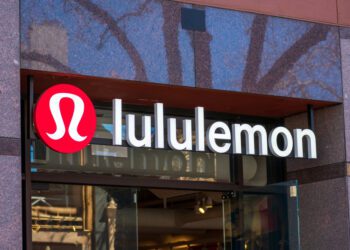Even China soccer team is not participating in Russia 2018, the country and several brands have conspicuous presence.
China soccer players have only qualified once for the finals of the men’s World Cup and that appearance —in South Korea and Japan in 2002— was forgettable.
The Chinese team failed to score a goal and conceded nine, crashing out of the tournament at the group stage. But even though China is sitting out the current tournament in Russia, it is still having a considerable impact. Seven of the 19 corporate sponsors are Chinese.
The World Cup is the marquee tournament for FIFA, the Zurich-based multi-billion-dollar enterprise that governs world football. FIFA booked $5.4bn in revenue for the four-year business cycle ending with the 2014 World Cup in Brazil, thanks largely to the television rights and corporate sponsorships that are the cornerstones of its balance sheet. The former brought in $2.4bn in revenue and the latter $1.6bn during that cycle, helping to offset the $2bn operational costs related to the staging of the tournament.
The World Cup is one of the world’s most-watched television events, so big companies have traditionally relished the platform it offers their brands and competed fiercely for the sponsorship slots on offer.
That has changed. In 2015 American prosecutors indicted some 40 individuals and entities associated with FIFA on a broad range of corruption charges, including racketeering, wire fraud and money-laundering conspiracy.
Companies such as Emirates, Continental, Johnson & Johnson and Sony refused to renew their sponsorship contracts when they expired. Few lined up to take their places. Of the 34 sponsorship slots on offer for the tournament in Russia, only 19 have been filled, a stark change from 2014 when sponsorship packages were sold out long before kick-off.
FIFA’s only new deals since the scandal broke have been with companies from Russia, Qatar (which hosts the tournament in 2022) and China, whose businesses seem to be less concerned about being associated with FIFA. Among those Chinese companies are Vivo, a mobile-phone company; Hisense, an electronics manufacturer; Yadea, an electric-scooter company; Mengniu, China’s second-largest dairy company; and Dalian Wanda, a conglomerate with interests in property and cinemas.
Around one in five Chinese people watched the 2014 tournament on television, but football’s popularity in the Middle Kingdom has not previously translated into large numbers of Chinese sponsors of the World Cup. Only one Chinese company sponsored the 2014 tournament, so the change with this year is notable. The Chinese president, Xi Jinping, an avid soccer fan, has made no secret of his wish for his country to qualify for another World Cup, host the tournament and eventually even win it.












